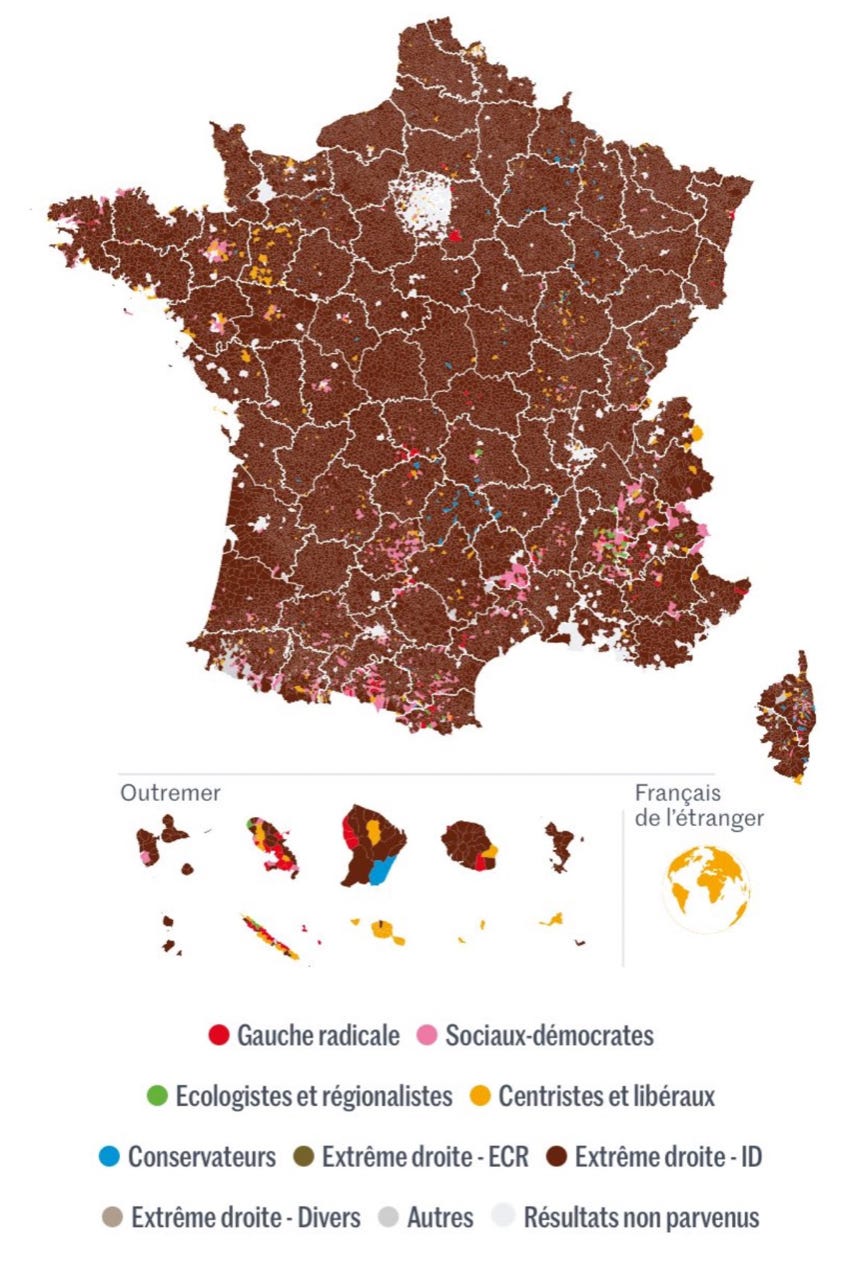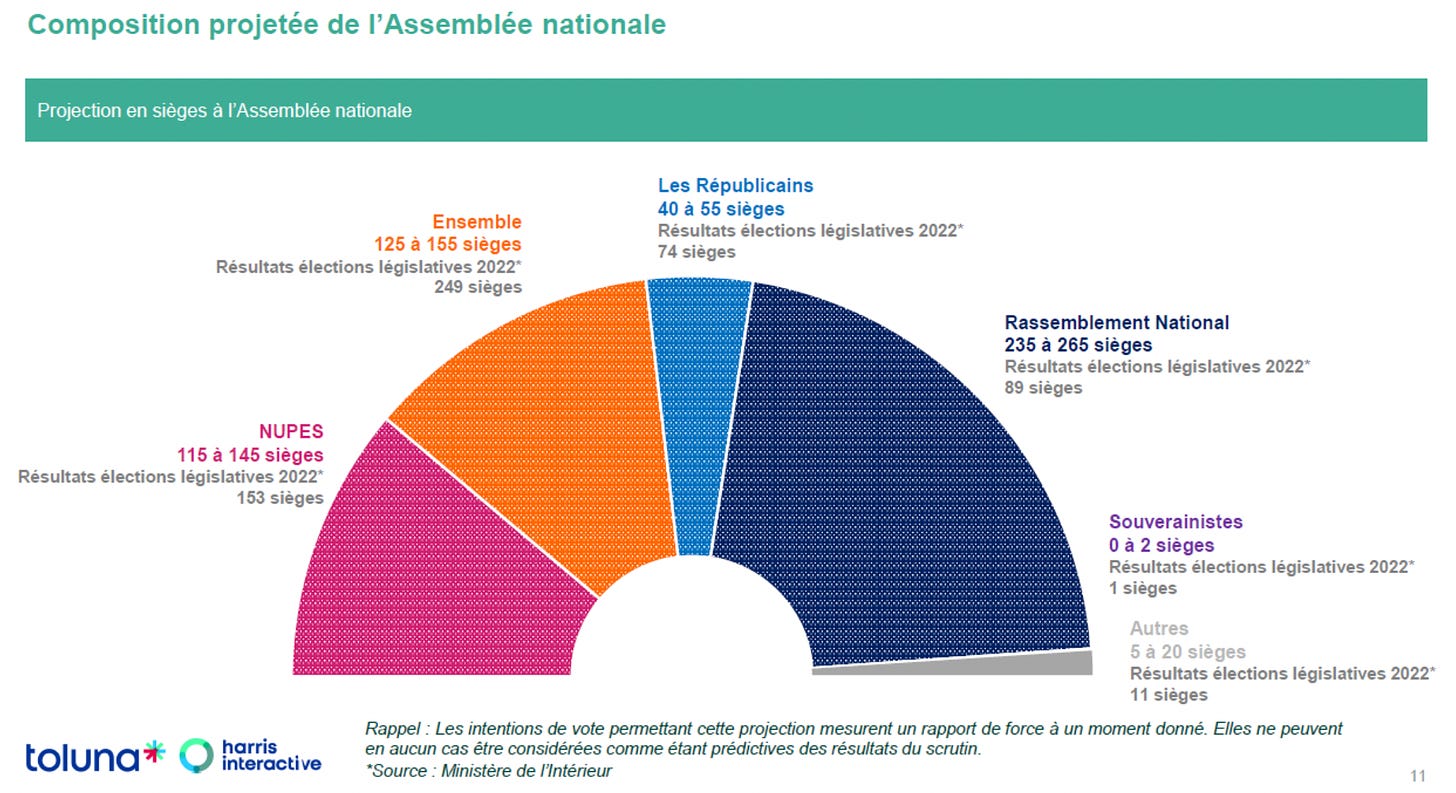The Wednesday Letter #224 - 6/12/2024
This Week: France After the EU Elections; Will the Fed Surprise?; Regional Banks Gray Rhino; Low Volatility.
FRANCE AFTER THE EU ELECTIONS
The results of last week’s elections for the European Union parliament showed a rise of populist-right (aka far-right) groups in France, Germany, and Italy.
A sizable share of the French electorate voted for the Rassemblement National (RN). The RN is the former Front National, the party of Marine Le Pen that is now presided by Jordan Bardella, a charismatic 28-year old college drop-out with very little in the way of political experience, or any kind of experience. The RN obtained 31.4% of the national vote, while president Emmanuel Macron’s coalition got a meager 14.6%.
The fascination with Bardella is interesting because until recently, the youthful face of French politics was none other than Emmanuel Macron. Macron became president at age 39 and is now 46. Opposition leaders Marine Le Pen and Jean-Luc Mélenchon are 55 and 72 years old. Macron is a former investment banker and a graduate of Sciences Po and l’ENA (Ecole Normale d’Administration), the two schools that produce the most high-level civil servants. He looks on paper like a product of the establishment par excellence, which creates for the populist Bardella a wide opening to act like the brash disruptor.
This contest will come to a head in coming weeks when France votes for a new Assemblée Nationale. Macron dissolved the Assemblée on Sunday after the RN’s strong showing in the EU vote. Here is a map of France showing in brown all the “communes” where the RN led the vote. France has nearly 35,000 communes and the RN came first in 32,000 of them.
Here, it is important to make a distinction between the European elections and French elections. Every EU state decides its own rules for the apportionment of seats but one overriding feature of the EU vote is that it is decided in one round. It is easy therefore for the party that comes first in any country to claim that it has ‘won’, even if it secured only a plurality instead of a majority of the votes. By contrast, French national elections are decided in two rounds, with only the two front-runners of the first round appearing in the second round. This means that the candidate (or party) that comes first in the first round can end up losing if all other candidates and parties line up against him/her (or it) in the second round. By calling a new vote for the legislature, Macron has gambled that all parties will line up against the RN in the second round.
A poll conducted this week shows that the RN will secure between 235 ad 265 seats in the new Assemblée. This would make it the largest party but would deny it a majority in the 577-seat chamber. Still, the RN’s fast rise should not be downplayed. If the poll is reliable, the RN will increase its presence in the Assemblée by at least 145 seats from 2022, while Macron’s Ensemble party will lose at least 94 seats. In order to resist the RN, Macron will need support from Jean-Luc Mélenchon’s NUPES coalition of leftist parties, and from the Gaullist Les Républicains.





